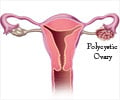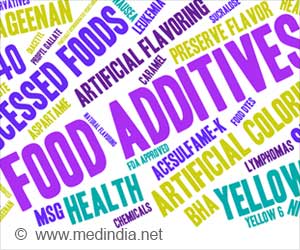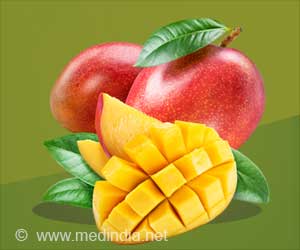- PCOS is a common yet frequently undetected disease that affects more than just the ovaries and is an endocrine and metabolic disorder that causes hormone imbalances
- The Mediterranean diet is the ideal diet for people with PCOS, as it eliminates foods associated with inflammation and includes non-starchy vegetables and fruits, lean protein, healthy carbs, and low-fat dairy
- People with PCOS should avoid foods that can ramp up inflammation, including fried foods, saturated fats, red meat, s, and processed foods bread, rolls, pizza crust, and pasta
It is a syndrome that causes particular hormones to become out of balance, resulting in symptoms such as irregular menstruation cycles, tiny ovarian cysts, and even elevated levels of androgens, which include testosterone.
Powering Through PCOS
The skin is frequently a window into what is going on inside your body. Acne, hair loss, excessive facial or body hair growth, dark patches on the skin, or any combination of these issues may occur in women with polycystic ovarian syndrome or PCOS. Because of the current state of PCOS, coping with it can be quite frustrating. Not only does it have an impact on your general physical health, but the toll of most symptoms can have an impact on how you perceive yourself, especially when it worsens skin disorders and causes aberrant hair conditions.You may have a healthy vagina, but keep in mind that PCOS is caused by several factors, the majority of which are already manifesting as symptoms. According to what has been reported and gathered, the illness extends beyond the reproductive system (1✔ ✔Trusted Source
Polycystic ovarian syndrome and the skin
Go to source).
As a result, you must understand that PCOS affects the entire body in multiple ways. These are some warning indicators to keep an eye out for:
- Weight gain
- Irregular menstrual cycles
- Vaginal bleeding that soaks through period products
- Excessive hair growth or hair loss
- Adult acne
- Other skin changes, such as discoloration
- Type 2 diabetes
- Cardiovascular diseases
- Obstructive sleep apnea
- Mood disorders such as anxiety, distress, depression, and eating disorders
PCOS: Why Diet Matters
What is the ideal diet for PCOS patients? While Stathos treats each patient as an individual, she points out that dietitians frequently advocate the Mediterranean diet for good reason. It provides a wide variety of meals from all categories, making it simple to follow as a lifelong approach rather than a quick fix (2✔ ✔Trusted SourcePCOS: Why Diet Matters
Go to source).
Diet for PCOS: What to Avoid
"Research shows that people with PCOS show evidence of all-over inflammation, which is associated with heart disease and other illnesses. The Mediterranean diet eliminates saturated fats, processed meats, and refined sugar, which makes it a powerful tool to address inflammation," Stathos says.“Other well-balanced diets that include non-starchy vegetables and fruits, lean protein, healthy carbs, and low-fat dairy can help people with PCOS get healthier and avoid difficulties,” she says.
Foods to Avoid If You Have PCOS
Stathos highlights that individual foods are rarely the cause of illnesses like polycystic ovarian disease, and no single item is likely to be a ‘magic bullet’ for restoring health.She does, however, point out that consuming too many foods related to inflammation can aggravate PCOS symptoms and increase the risk of a variety of other conditions that individuals with PCOS are predisposed to develop, such as heart disease.
People with PCOS should avoid these foods that can ramp up inflammation:
- Fried foods (French fries, potato chips, corn chips, and fried chicken or fish)
- Saturated fats such as butter or margarine
- Red meat, including hamburgers, roast beef, and steaks; processed luncheon meat; and hot dogs
- Processed snacks: cakes, cookies, candy, and pies
- Prepared cereal high in sugar, including instant oatmeal and granola
- Sugary beverages such as sodas, teas, and sports drinks
- Alcoholic beverages
- Refined flour, white bread, rolls, pizza crust, and pasta
- White rice
PCOS-Friendly Foods and Substitutes
Stathos explains that "substituting complete, unprocessed choices for inflammatory products can set the scene for greater long-term health." Mediterranean diet options like these can help you lose weight and manage PCOS symptoms while providing plenty of nourishment and flavor:- Baked or broiled omega-3-rich fish, such as salmon
- Instead of butter or margarine, use olive oil.
- Instead of meat, use beans and other protein-rich legumes.
- Leafy greens (spinach, kale, escarole, endive, lettuce, etc.), tomatoes, mushrooms, peppers, broccoli, cauliflower, snow peas, celery, and fennel are examples of non-starchy vegetables.
- Brown rice, barley, sorghum, and other whole grains. Whole-grain bread and pasta can help patients with PCOS avoid blood sugar increases.
- Whole fruit for dessert. The fiber content in whole fruit helps you feel full, helps your digestion, and slows down the absorption of its sugars into the bloodstream.
- Consume plenty of water and sugar-free or low-sugar beverages.
- It is critical to stay hydrated. Have plenty of water and unsweetened coffee or tea. Try seltzer with a dash of fruit juice instead of soda.
PCOS FAD Diets? Not so Fast
Controlling insulin resistance requires weight loss, but following diet trends may not be the best way. Any diet that eliminates entire food groups, such as carbs, is unsustainable for long-term weight loss."Eliminating carbs is not something I recommend," she says. "However, choosing more low-glycemic carbohydrates (those that do not cause a surge in blood sugar) such as fiber-rich whole grains and non-starchy vegetables can be helpful. The goal is to keep blood sugar stable and avoid big dips and spikes. Smaller, more frequent meals can help, combined with balanced snacks, so you’re eating about every four hours."
Stathos believes that because maintaining constant blood sugar levels is vital, intermittent fasting may not be the ideal option for those with polycystic ovarian syndrome. She mentions that some patients may consume too many calories when eating is permitted. Intermittent fasting is a relatively recent strategy for weight loss that works for some people, but she says more research is needed to see if it is safe and beneficial for people with PCOS.
Time to Take charge of your PCOS
Stathos claims that when combined with nutrition, exercise, and other healthy lifestyle practices like getting enough sleep and managing stress, it can help reduce PCOS symptoms, lower your chance of developing chronic disease, and enhance your life (3✔ ✔Trusted SourceNutrition Strategy and Life Style in Polycystic Ovary Syndrome-Narrative Review
Go to source).
"Being diagnosed with polycystic ovarian syndrome does not predestine you to ill health," Stathos emphasizes. "There is a lot you can do to take control, lessen symptoms, and stay healthy."
References:
- Polycystic ovarian syndrome and the skin - (https://www.health.harvard.edu/blog/polycystic-ovarian-syndrome-and-the-skin-202104292552)
- PCOS: Why Diet Matters - (https://www.hopkinsmedicine.org/health/wellness-and-prevention/pcos-diet)
- Nutrition Strategy and Life Style in Polycystic Ovary Syndrome-Narrative Review - (https://pubmed.ncbi.nlm.nih.gov/34371961/)
Source-Medindia















